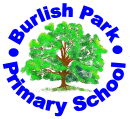Maths
 Burlish Park Primary School
Burlish Park Primary School
Maths
Intent, Implementation and Impact
Intent:
At Burlish Park Primary, our Mathematics curriculum intends to enable pupils to be proficient, competent and confident with a range of mathematical ideas and concepts. We want our children to have a positive attitude towards mathematics and develop confidence in the subject. We value the importance of mathematical discussion and vocabulary, allowing all children to build connections with maths in lessons and maths in the real world.
Implementation:
We have integrated a Mastery approach to the Maths curriculum at Burlish Park Primary. This means that we allow all children to access fluency, problem solving and reasoning tasks in the majority of lessons. There is an expectation that ‘you can’ achieve and there is no such thing as a person who ‘can’t do’ Maths. Maths is accessible to all, with those that pick up the learning more quickly, able to deepen their learning. Whilst those who have found the learning in a particular lesson more challenging will be given ‘intervention’ during the lesson to overcome misconceptions.
Most lessons will include varied fluency, problem solving and reasoning elements. The basis for this comes from the White Rose small steps planning, although the staff are encouraged to use other resources to help supplement the learning in each lesson. These units also allow for you to ‘linger longer’ on topics, to ensure a deeper level of understanding can be achieved.
To further supplement the curriculum, we use ‘daily basics’ sessions, known as Memory Maths to revisit key curriculum concepts. This allows for greater connectivity between different areas of Mathematics and develops efficient and effective recall.
We also look for opportunities for children to use their mathematical skills across the wider curriculum. This can occur in a variety of ways and in a number of subjects, but there are chances for children to show that they have fully understood a concept by using it in a different context.
Impact:
You will see challenge for all in each lesson, ensuring all children will progress. You will see children using a variety of CPA (Concrete Pictorial Abstract) techniques to solve challenges, tailored to the needs and requirements of each individual child. Children will be expected to respond to challenges using a variety of CPA techniques. You will also see children having a deeper understanding of concepts and ideas, because of the structure of lessons. Children will be able to articulate and explain ideas in greater detail, due to the quality of the teachers’ questioning and also because the staff will have high expectations of the children when they respond to questions.
Children will understand the relevance and importance of what they are learning in relation to real world concepts. Children will know that Maths is a vital life skill that they will rely on in many areas of their daily life. Children will have a positive attitude towards Maths due to learning in an environment where Maths is promoted as being an exciting and enjoyable subject in which they can investigate and ask questions; they know that it is OK to be ‘wrong’ and that this can strengthen their learning because the journey to finding an answer is most important. Children will be confident to ‘have a go’ and choose the equipment they need to help them to learn along with the strategies they think are best suited to each problem.
Growth Mindset in Maths
